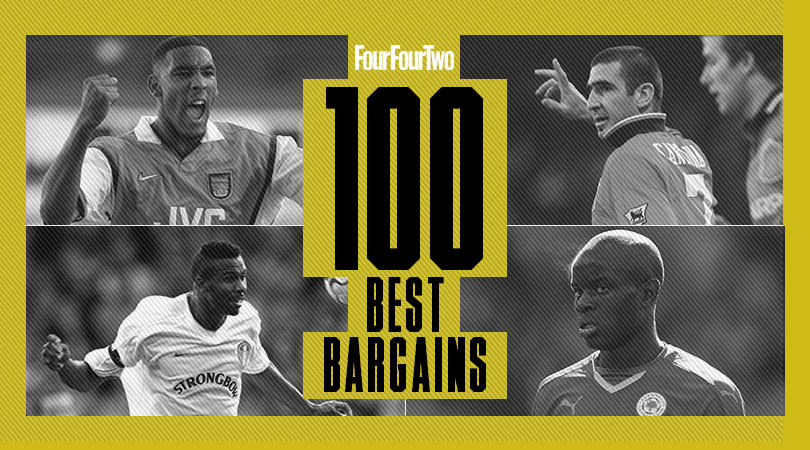Financial Fair Play vs fairy tales: the Football League’s intractable fiscal conundrum
Well-intentioned law-making or helplessly misguided? It's not quite clear if anyone's winning here, writes Gary Parkinson – and troublingly, may never will be
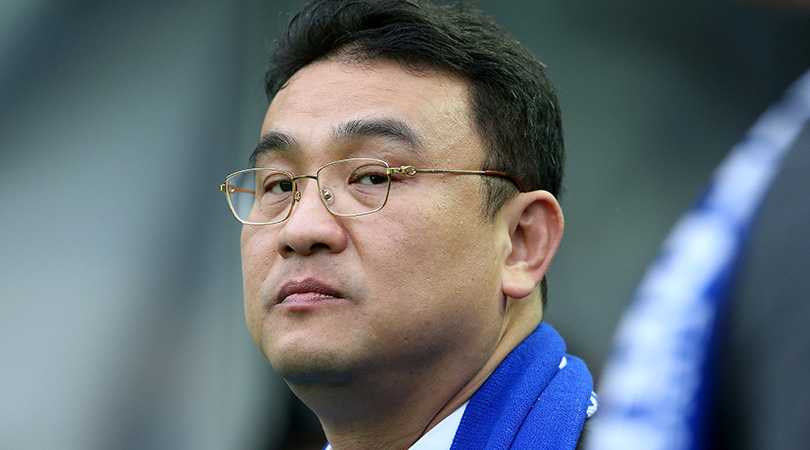
The best features, fun and footballing quizzes, straight to your inbox every week.
You are now subscribed
Your newsletter sign-up was successful
Want to add more newsletters?

Five times a week
FourFourTwo Daily
Fantastic football content straight to your inbox! From the latest transfer news, quizzes, videos, features and interviews with the biggest names in the game, plus lots more.

Once a week
...And it’s LIVE!
Sign up to our FREE live football newsletter, tracking all of the biggest games available to watch on the device of your choice. Never miss a kick-off!
Join the club
Get full access to premium articles, exclusive features and a growing list of member rewards.
“If we break [Financial Fair Play rules] a little, no problem. But we broke a lot: eight figures high – this is the truth. If we don’t go up soon, we will break it anyway. If we didn’t spend, I believe we would have been relegated.” – Dejphon Chansiri, Sheffield Wednesday owner, December 2018
It was an extraordinary evening in Hillsborough’s packed 1867 Lounge. Before the night was over, the moist-eyed Sheffield Wednesday owner Dejphon Chansiri would announce to startled fans that he was prepared to sell the club. But even before that closing bombshell, he had said plenty to get the local reporters filing stories on the fly.
Wednesday’s woes were not news: the fans’ forum took place the week before Christmas, and the club had spent April until August under embargo. What surprised fans and hacks alike was Chansiri’s honesty. The Thai tinned-tuna magnate had promised to be open, but this was unexpectedly unguarded.
The proud owner of a proud club since buying out Milan Mandaric in January 2015, Chansiri had presided over two top-six finishes (read: play-off failures) in his first two full seasons followed by a dispiriting 15th-placed campaign last term. That wasn’t the plan when bankrolling lavish spending on players like Jordan Rhodes, Almen Abdi, Adam Reach and Joost van Aken, to name a few. If you don’t know who some of those are, that speaks volumes for their impact.

To some extent, it had been a calculated gamble. Had Rhodes’s goals, Abdi’s guile, Reach’s versatility and Van Aken’s solidity swept Wednesday into the Premier League, their combined cost would have been wiped by the benefit of the beanfeast at English football’s top table.
But as Owls fans will readily tell you, that didn’t happen. Transfer-tattle tweets linking Abdi and Van Aken with moves elsewhere have been met with disgruntled punters’ standard offers of taxi rides and air-fare whip-rounds. Rhodes, a usually reliable second-tier marksman who cost Wednesday £10m but elected to sit out a play-off penalty shootout because he “wasn’t confident” and watched his team-mates beaten by Huddersfield, was loaned to Norwich last summer.
Reach is well-regarded but that only means he might leave this January, as Wednesday bob about in lower-mid-table, closer to the dotted line of relegation than the one under top-six contenders including their Steel City neighbours. If January brings the rumoured eight-figure offer from Villa or Wolves, they may have to sell Reach – because of Chansiri’s own eight-figure gamble which didn’t pay off.
The best features, fun and footballing quizzes, straight to your inbox every week.
“We have problems with FFP, so it is hard but we will try our best. With January in mind, I cannot answer what we can do right now. The important thing for me is to solve FFP.” – Dejphon Chansiri, Sheffield Wednesday owner, December 2018
Blue Wednesday
In March 2018, Sheffield Wednesday released their financial results for the 2016/17 season, the one which ended in that penalty heartache in the play-off semis. Having lost £9.8m the previous season, where they’d gone even closer by losing to Hull in the play-off final, their annual losses more than doubled to £20.8m as wages shot up 52% from £19.3m to £29.3m. With salaries running at £564,000 per week, the wage-to-turnover ratio accelerated from 88% to 126%.
It’s easy to get lost in percentages, but as is so often the case, these figures are expressed with calm simplicity by Kieran Maguire, the University of Liverpool lecturer in football finance whose Twitter feed PriceOfFootball (@KieranMaguire) is alternately illuminating and terrifying.
“They were spending £126 on wages for every £100 coming in,” says Maguire, “so that’s simply not sustainable under FFP rules unless they can generate extra income.” But where from? The fans had already swallowed a ticket price rise, and as Maguire notes, “no one is going to pay a fortune to be a shirt sponsor. If you’re looking to reduce your losses, you either increase the money coming in or you cut the money going out. The wages cost at Wednesday is a big one.”
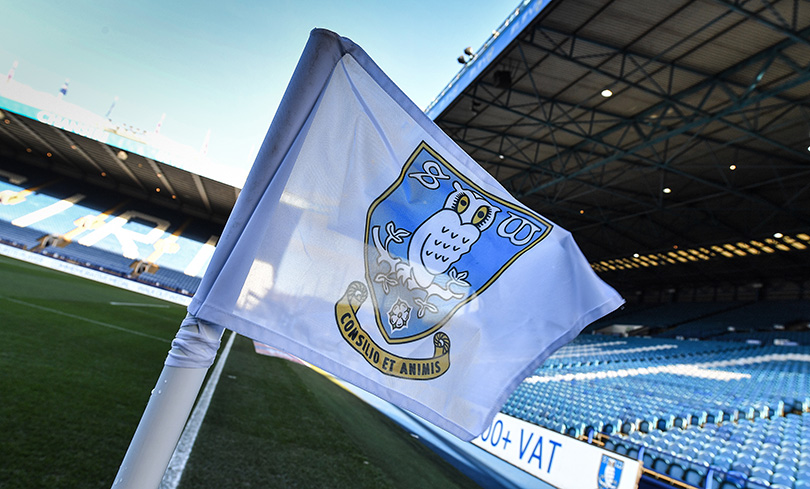
The other big income generator is TV money, and here Wednesday will say, with some justification, that they weren’t fighting on football’s favoured turf: a level playing field. While most Championship clubs receive around £7m per year in TV money, the Owls were competing with Premier emigrés like Aston Villa and Norwich City, awash with top-flight parachute money.
For such clubs, the latest Premier League TV deal had bumped up parachute payments from £26m in 2015/16 to £42m. Accordingly, for the same season, Villa’s wage bill was £61m – more than double Wednesday’s. Villa also spent an eye-watering £88m on transfers in a doomed attempt to bounce straight back to the land of milk and money. They would, in time, face their own fiscal reckoning. And they would be far from alone, within their own division and even city.
“I told you we were going to have FFP problems if we didn’t go up last season. Some people, maybe more, say I spend not wisely on players, which I disagree. I spent money to stay in the Championship and give us more potential to go up.” – Dejphon Chansiri, Sheffield Wednesday owner, December 2018
Threats and settlements
Last July, roughly halfway through Wednesday’s embargo, QPR finally came to an agreement with the EFL to end an FFP dispute stretching back half a decade.
Relegated from the Premier League in 2013, the Rs bounced straight back – partly thanks to a £75m wage bill running at 195% of their £38.6m turnover. In summer 2015 they suffered the double blow of relegation and punitive action from the Football League, who initially threatened to bar them from the Championship.
That threat was waived while QPR counter-claimed that FFP itself was unlawful, a claim dismissed by an arbitration panel in October 2017. QPR kicked the can down the road by appealing against this decision, an appeal dismissed last July. The Rs were duly placed under embargo for this January 2019 window, while the £42m settlement included an official fine – for ignoring the rules in their promotion season – of £17m.
It was the Football League’s second settlement of the summer, having finally got Bournemouth to pony up for their own overspending when winning the Championship in 2015 (replacing QPR in the big boys’ league).

At that time, League rules stated that second-tier clubs could lose no more than £3m per season, or £6m with owner investment. Unlike their strikers, Bournemouth rather missed the target with a £38.4m loss, mostly through wages of £30.4m running at 235% of their £12.9m turnover. Having originally been expected to pay a fine of £7.6m, the Cherries coughed up just £4.75m.
And that wasn’t even the slimmest settlement of 2018. In February, the League and Leicester had finally reached agreement over a suitable punishment for the Foxes’ overspend en route to the Championship title in 2014, when they had somewhat missed the £8m target by racking up a £34m loss (albeit tweaked to £21m via a deal, investigated and cleared by the League, in which a new company called Trestellar – so small they didn’t have a website or telephone number – sold the sponsorship of the club’s shirt and stadium to, er, its owners King Power). Nearly four years, a Premier League title and a Champions League quarter-final later, Leicester paid the League a £3.1m settlement.
So that’s three successive Championship winners, rampantly overspending en route to Premier League riches, fined £17m, £4.75m and £3.1m. Remember those numbers when the much bigger cash prizes are mentioned next May.
“The alternative is Chansiri throws in £50m to £60m and buys a load of players and accepts they are going to breach FFP. If you get promoted, you don’t have to worry about the sanctions for a while. What you tend to find is the fines dished out by the Football League are much less than what you’re earning in the Premier League anyway.” - Rob Wilson, football finance expert at Sheffield Hallam University
New thinking
By the time Bournemouth overspent their way to promotion, the QPR incident had helped convince the League, ever ready with a spiffing new wheeze, to unveil new fiscal regulations. At a September 2014 EGM, Championship clubs agreed new ‘Profitability and Sustainability’ guidelines from the 2016/17 season, essentially extending their legislated overdrafts. Having been asked to operate with losses of under £3m a season, clubs were now allowed to lose up to £15m over three seasons without any sanction.
Moreover, they could overspend by up to £39m over those three seasons if they provided “evidence of Secure Owner Funding and Future Financial Information for the two seasons ahead”. These excitingly capitalised phrases hint at the heart of the worry: clubs gambling on reaching the Premier League promised land by spending money they don’t have.
The EFL’s new rules give it substantially more powers than its previous FFP iteration. In addition to a fine, embargo or delayed points deduction, it can now impose an immediate points deduction, demote a club from an automatic promotion position to the play-offs or even out of the play-offs altogether.
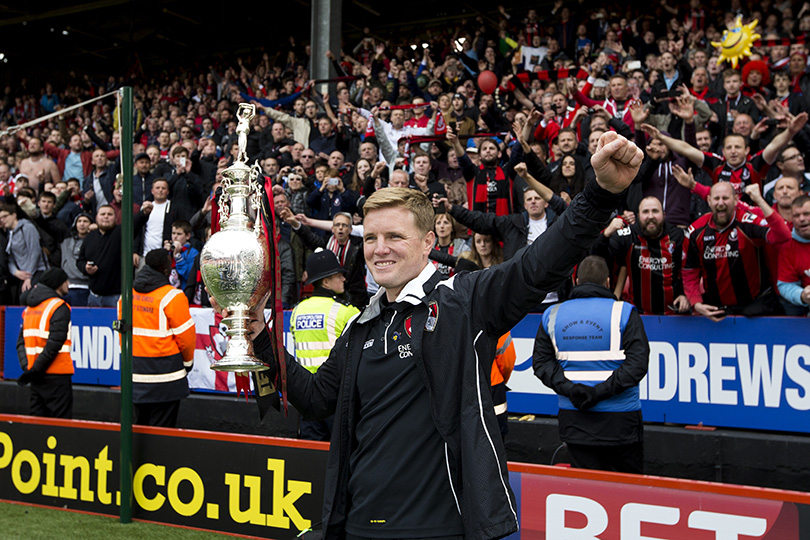
But the intractable problem for the Football League is that it’s trying to put out multiple simultaneous fires, fruitlessly endeavouring to satisfy often-complimentary desires. (See also the ongoing train-wreck that is the Checkatrade Trophy, in which the League – by legislating against the sort of multiple line-up changes that cause cries of ‘disrespect’ – has effectively outlawed its members’ attempts to promote their youth prospects while actively developing the Premier League’s U23 teams.)
In the case of FFP, as well as the whole other can of worms that is the Fit & Proper Persons Test (a paper tiger which ineptly attempts to determine initial eligibility for club ownership before handing over to FFP for the regulation of their ongoing running), the League is understandably trying to safeguard clubs’ futures against reckless spend-now abscond-later owners; the sort who gamble money they can’t guarantee on a dream they can’t all achieve.
Clubs can lose up to £15m over three seasons without sanction
They can lose up to £39m over three seasons if they satisfy League of their fiscal safety
Clubs can overspend by £35m (rather than £13m) per season spent in EPL during those three years
Trouble is, such dreams are what keep us fans clicking through the turnstiles. An older generation of lower-league and non-league fans dreamt of emulating Wimbledon’s rise up the ladder. Younger fans might hope to match Bournemouth or maybe even Leicester. Every fan wants big signings, and new owners endeavouring to play the cool stepdad are often happy to ratchet up the excitement – but ask Leeds fans about the lingering effects of Peter Ridsdale “living the dream”.
Ridsdale overspeculated on the assumption that Leeds would remain in the Champions League. He was widely derided, but similar fiscal gambles are now the Championship commonplace as more than half the division scrambles for those three golden tickets onto the Premier League gravy train. And as they jostle for position, some are getting very significant help from above.
“I’ve spent a lot of money, but I still lose. I never think about profit - which is difficult for me. Every [other] business, I think about profit, but this I don’t. If we spend and don’t go up, we break FFP. Last year we get embargo. This year I still try but it’s not like before.” – Dejphon Chansiri, Sheffield Wednesday owner, December 2018
Parachuting in
When the Football League unveiled its Profitability & Sustainability guidelines – the ones which allowed clubs over a three-year period to lose up to an unchecked £15m or an audited £39m – they had to make exceptions for the elephants in the room. Any clubs who had tasted the Premier League elixir were allowed to lose not £13m but £35m per season spent in the top flight. Perhaps no better yardstick demonstrates the fiscal gap between the divisions.
Allowed a far bigger hand by the Football League, these relegated clubs were also still in receipt of Premier League parachute payments. Unique to the English game, these were introduced in 2006/07, ostensibly to help relegated clubs avoid financial trouble as costs exceeded income.
They started as half of the Premier League’s TV per-club income, roughly £12m per season, for two years. As a sop to the other teams, the EPL also provided the almost satirically named ‘solidarity payments’ of roughly £1m per second-tier club. But as the top-flight TV deals rocketed, so did the inequality.

First the parachutes extended to £48m over four years – not so much a safety net as a hammock. In 2015 this was reined in again, to three years (or two if a club had only enjoyed one season in the Premier inn), but in line with the new EPL TV deal, the payout mushroomed: it’s now £42m for the first season, £34m in the second and £16.6m in the third.
Note how those figures tail off for that third season, creating the sort of situation that Villa found themselves in this summer: cutting their cloth, via a brief embargo, after two failed attempts to turn the parachute into a trampoline.
But initially, a club coming down from the top flight is currently allowed under FFP to lose £22m more per season than its competitors, and for that vital first campaign it’s handed a £42m cheque by its old mates in the Premier League. Relegated clubs are actively encouraged to gamble on returning, sparking a transfer scramble which inflates the market for all concerned – like in summer 2017, when Middlesbrough spent £30m on strikers alone.
As Sheffield Hallam University sports finance specialist Rob Wilson has noted, “It’s almost like they [the Premier League] are protecting the integrity of the three clubs that are relegated to the Championship, giving them a lot more money to survive in the league below which might then increase the same three clubs’ chances of getting promotion at the first attempt.” Or as Keith Hill put it while managing Barnsley, “I've never been rewarded for doing anything wrong or being relegated. Clubs that get relegated get rewarded financially, how does that make sense?”
“We need to try to solve FFP. If I can not solve FFP then I need to think what can I do? I do that myself because people say it’s not worth it to help us. It's my responsibility. If this season I can sell and do good, then next season we can do better.” – Dejphon Chansiri, Sheffield Wednesday owner, December 2018
All on their own
Hill’s confusion was created by the corporate colossus of the Premier League, a curiously standalone beast in the increasingly fractured world of football.
Its success – or rather the success of some of the clubs which have graced it – has been central to football’s enormous financial expansion over the last quarter-century. However, unlike the Football League below it or the UEFA competitions above it, the Premier League sees no need to meddle in its constituent members’ fiscal affairs.
The attitude of the English football oligarchy is summarised in the premierleague.com article “What is Financial Fair Play?” Noting that the EPL, EFL and UEFA have different legislation, this four-paragraph page – part SEO-hoover, part hygiene exercise – efficiently underlines that “the Premier League has a number of financial rules in place”, like annual accounting, prompt payment of bills and agent-fee disclosure, before passive-aggressively noting: “Outside of these obligations it is up to individual clubs, who all have their own directors and senior executives, to make decisions over how they spend their income”.
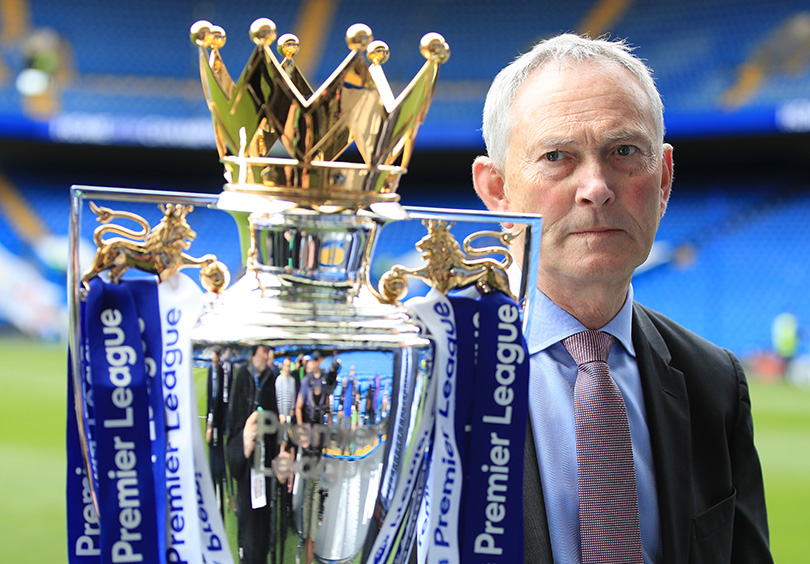
Such laissez-faire economics fit naturally with the Premier League’s founding principles of self-determination – let it not be forgotten that the entire reason the top clubs sought independence was to circumvent the fiscal solidarity of the 92-team Football League – curiously mixed with left-leaning communality enshrined in ideas like parachute payments and collective bargaining for TV deals.
These one-for-all (as long as they’re in the top flight) practices show the sort of social concern that astonishes the top brass at European clubs who negotiate individual TV deals and couldn’t care less what happens to relegated clubs. But then, English football has always been odd. Even when alpha Thatcherites like Alan Sugar were creating their new cartel, perhaps they couldn’t entirely abandon the league’s unionised working-class beginnings. Or perhaps they simply needed the votes of irritatingly equal top-flight clubs like Coventry, Luton, Notts County and Oldham.
“I know every club in the Championship, or lower, if you spend money and stay in the same league then you will break FFP anyway. What I’ve done is spend money. I don’t spend to gamble. The priority was to spend money to stay in the league and have potential to go up. If I don’t spend, you have more risk to get relegated.” – Dejphon Chansiri, Sheffield Wednesday owner, December 2018
This is not normal
Back in the Championship, while the fiscal roulette wheel spins ever faster, the clubs crowded around it change from year to year. Some start to gamble, others know when to walk – or hobble – away.
With a rejigged ownership resolutely refusing to spend money they don’t have and an astute manager in Steve McClaren making the most of youth prospects and cast-offs, QPR have got their house much more in order. The 2017 accounts show a wage-to-turnover ratio of 64%, far more sustainable than their 2014 audit of 195% (or Bournemouth’s of 235% the following season), if still uncomfortably above the benchmarks employed by normal businesses.
Trouble is, football is not a normal business, and the Championship is perhaps football’s most eye-wateringly abnormal. The majority of Championship clubs operate at a loss: in 2016/17, 19 of the 24 clubs lost money, and one of the five exceptions, Nottingham Forest, were only in the black because departing owner Fawaz al-Hasawi waived a £40m loan. In 2015/16, only Wolves made a profit.
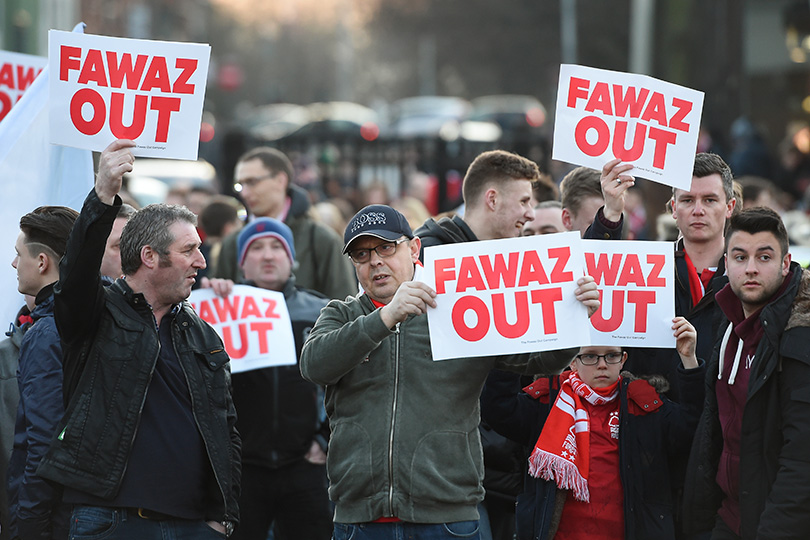
Although the numbers move up and down depending on each season’s participant clubs, as a reliable thumb-rule, more than half of Championship teams operate with a wage-to-turnover ratio above 100%: as Kieran Maguire puts it, for every £100 they earn, they spend more than £100 on salaries alone. Sometimes a lot more.
In 2017/18, after the owners bankrolled a brief but expensive visit from the future jungle king, Birmingham’s wage-to-turnover ratio shot up to a scarcely believable 202%. Only once has a Championship club recorded a higher ratio, when 2015 title-winners Bournemouth racked up a 237% figure somewhat inflated by promotion bonuses.
Birmingham, whose 2017/18 wage bill of £39m was the highest ever paid by a Championship club not bolstered by parachute payments, finished 19th. No wonder they became the latest in a growing number of clubs to have been under embargo, a list which besides those clubs already mentioned has included Bolton, Blackburn, Fulham, Leeds and Nottingham Forest – and looks set to grow longer as the Football League is forced to Do Something About It.
Such terrifying levels of unsustainability are maintained and magnified by the Championship clubs’ startling dependence on owner investment. In early January, renowned football finance expert @SwissRamble’s deep-dive investigation revealed that over the past decade, 87% of Championship clubs’ cash came from owner investment, with just 7% from operating activities.
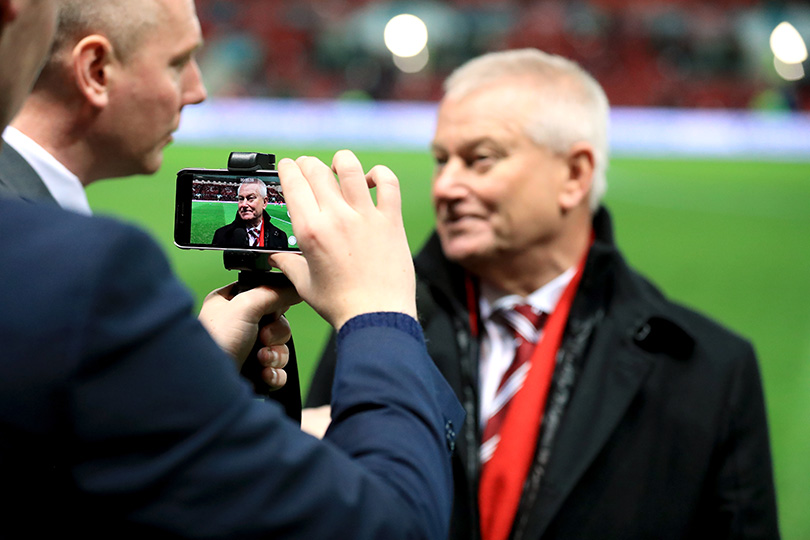
Again, these percentages may not mean much in isolation, but are thrown into stark contrast with the Premier League, where 42% comes from owner investment and 54% from operations. In the second tier, clubs have had £2.8bn of available cash, of which £2.5bn has come from owners’ pockets – £0.6bn as shares and £1.9bn as loans.
Three clubs – Villa, QPR and Brighton – have had around £300m pumped in by various owners. In all, 10 clubs have each had north of £100m thrown at them, and a couple – Derby and Bristol City – haven’t even reached the promised land. Forget Chansiri’s eight-figure gamble, these are nine-figure speculations which don’t always come good. And what happens if those benefactors – perhaps affected by financial troubles beyond their control in an increasingly volatile world – pull the plug or attempt to get their money back?
“We have problems with FFP, so it is hard but we will try our best. With January in mind, I cannot answer what we can do right now. The important thing for me is to solve FFP. One day you will have a new owner but while I am your chairman I will do my very best and never do anything to damage this wonderful club.” – Dejphon Chansiri, Sheffield Wednesday owner, December 2018
Fair is… what?
Such is the scale of the problems that the Football League is attempting to tackle, with the sort of inevitably underwhelming response which brings to mind Sean Lock’s line about turning up at an earthquake site with a dustpan and brush.
What can the League do to prevent the imbalance? It might make sense to take heavily punitive measures against teams who are still suckling the Premier League teat and can therefore, frankly, afford the hit. Leicester were lucky to be fined just £3.1m, barely more than they’d paid for Bartosz Kapustka. (Who? Well, quite.) Bournemouth’s £4.75m summer wrist-slap paled beside the £111.2m they’d just won in Premier League TV and prize money.

But what should be done to those for whom the gamble has failed? By the time QPR were brought to heel for their 2013/14 profligacy, they were back in the second tier, running a tighter ship and simply attempting to avoid further relegation. In such cases a huge fine would be more retribution than rehabilitation; although that might appease the bloodlust of certain rivals while serving as a warning to others, it would presumably have a disproportionately enormous effect on a club now living within its means.
As for Birmingham, the only appropriate reaction currently seems to be a sad shake of the head and a glassy-eyed stare into the middle distance. There will presumably be few clubs who fall prey to the lethal combination of dreamy owners and Harry Redknapp, but what punishment would you see as fair?
Perhaps the whole notion of ‘Financial Fair Play’ is inevitably misguided. What is fair about stopping a Jack Walker de nos jours investing in the boyhood dreams he shared with thousands of others? The fundamental premise of capitalism is the idea of speculating to accumulate; the fundamental premise of sport is that anyone can beat anyone. Even more deeply, haven’t we all since childhood dreamt that one day our own benign fairy godmother would grant us our wishes?
If we go too far into regulatory control, the only clubs who can ever be big clubs are those who are already big, a kind of ordained predestiny that’s more Calvinist than capitalist and would rule out all hopes of further fairy tales from the Dons to the Foxes.
An alternate and opposite endgame is the kind of total parity under which all resources are collectivised, centralised and equitably redistributed, in order of need, the better to make the game as fair as possible.
If this understandably sounds like a communist hell-hole, note that the ultimate proponents of financial fair play is that quasi-Soviet collectivist policy curiously beloved of US sports – and nobody, from lower-league dreamer through Champo gambler to Europe-straddling nouveau-riche arriviste – is going to vote for that.
Gary Parkinson is a freelance writer, editor, trainer, muso, singer, actor and coach. He spent 14 years at FourFourTwo as the Global Digital Editor and continues to regularly contribute to the magazine and website, including major features on Euro 96, Subbuteo, Robert Maxwell and the inside story of Liverpool's 1990 title win. He is also a Bolton Wanderers fan.
 Join The Club
Join The Club










